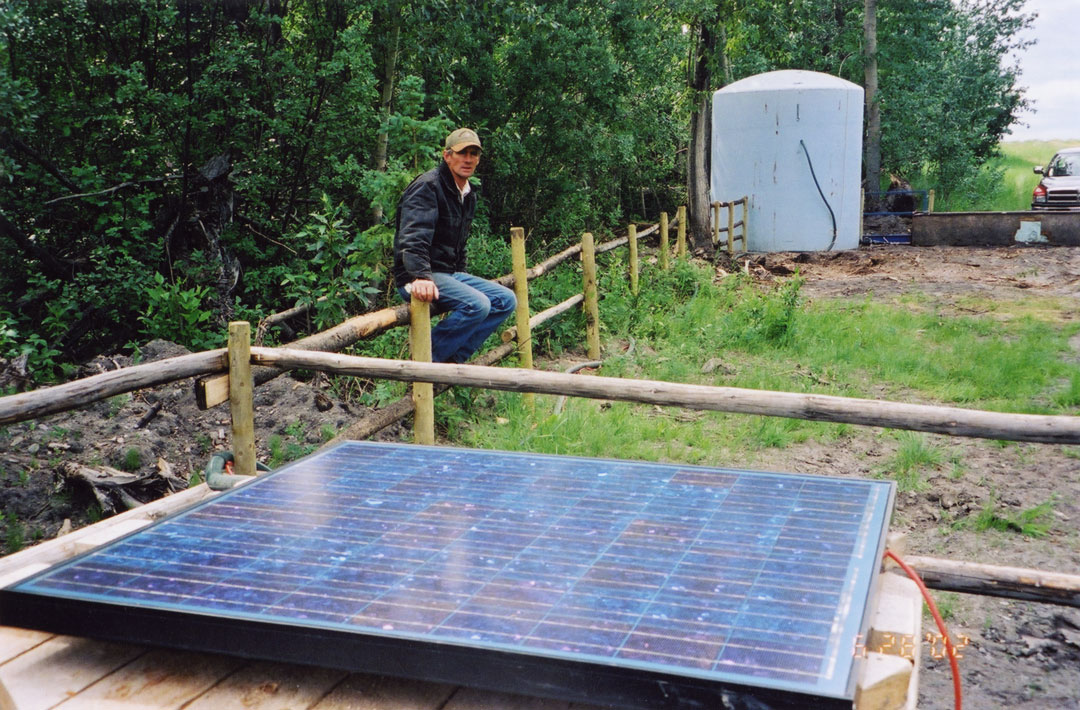AGAINST THE GRAIN
A “POWERFUL” STORY
Today’s solar panels may not look a whole lot different than this one— located in a pasture on the Usher Ranch in east-central Alberta—did 20 years ago. However, the technology for pumping water with solar energy has improved, becoming more efficient and more cost effective.
Although specific details for this installation aren’t available, solar experts say this appears to be about a three-square-foot, 50- to 100-watt panel used to collect solar energy in a “solar direct” system, powering a pump that delivers water to the storage tank in the background. The flat panel laying on a wooden platform was strictly a summer system. On overcast winter days, once the snow had arrived, it wouldn’t be effective, and this storage tank wasn’t winterized either.
The technology has developed over the past 20 years, and today’s solar panels are more efficient. Also, in more than 90 per cent of modern installations, batteries are used to store power, and heated or heavily insulated tanks or troughs (capturing thermal heat from the ground and water) are used, making it possible for solar-powered watering systems to run year round. A solar panel today would be mounted on an aluminum frame and angled at 45 degrees to catch maximum solar effect in summer, and be set at about a 20-degree angle for winter use.
Back in the day, this system may have cost about $10 per watt, while today a similar system would fall in the range of $2 to $3 per watt.
The Ushers ran a progressive ranching operation near Scollard and Big Valley in east-central Alberta. Tom Usher and his brother Charlie, both born in Scotland, came to Alberta in 1902 and 1903, respectively. Originally, they worked for one of Alberta’s first large-scale beef producers, William Roper Hull, on his ranches, but the brothers eventually bought their own operation. Their sister, Eliza Jane Usher, kept house for her brothers.
Tom was a longtime member and director of the Western Stock Growers’ Association. In 1990, the Rumsey Ecological Reserve was established on the Ushers’ leased lands, and the remaining portion was declared a natural area. The lease was sold in 1999 and the remaining deeded land was sold in 2008.








Comments